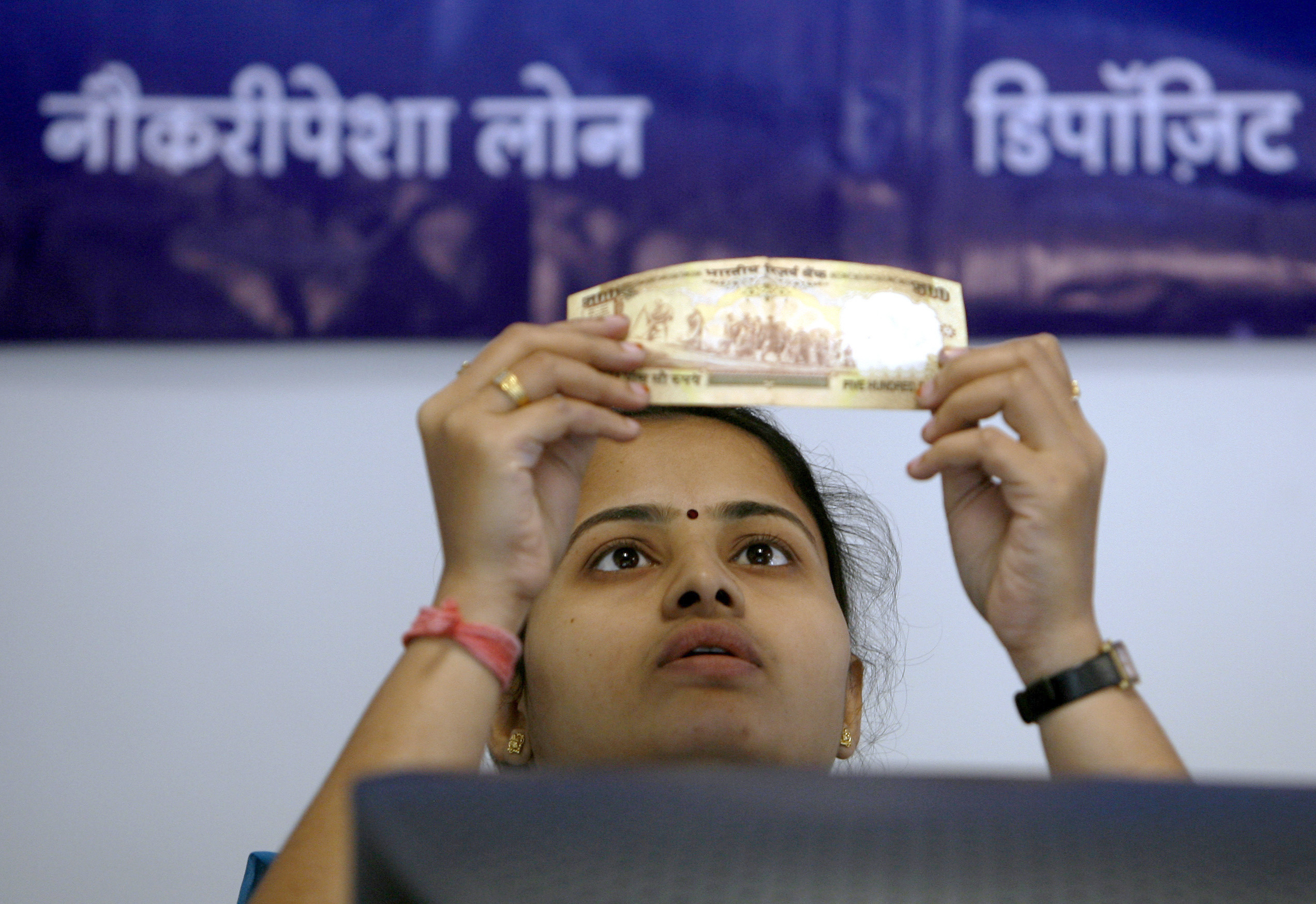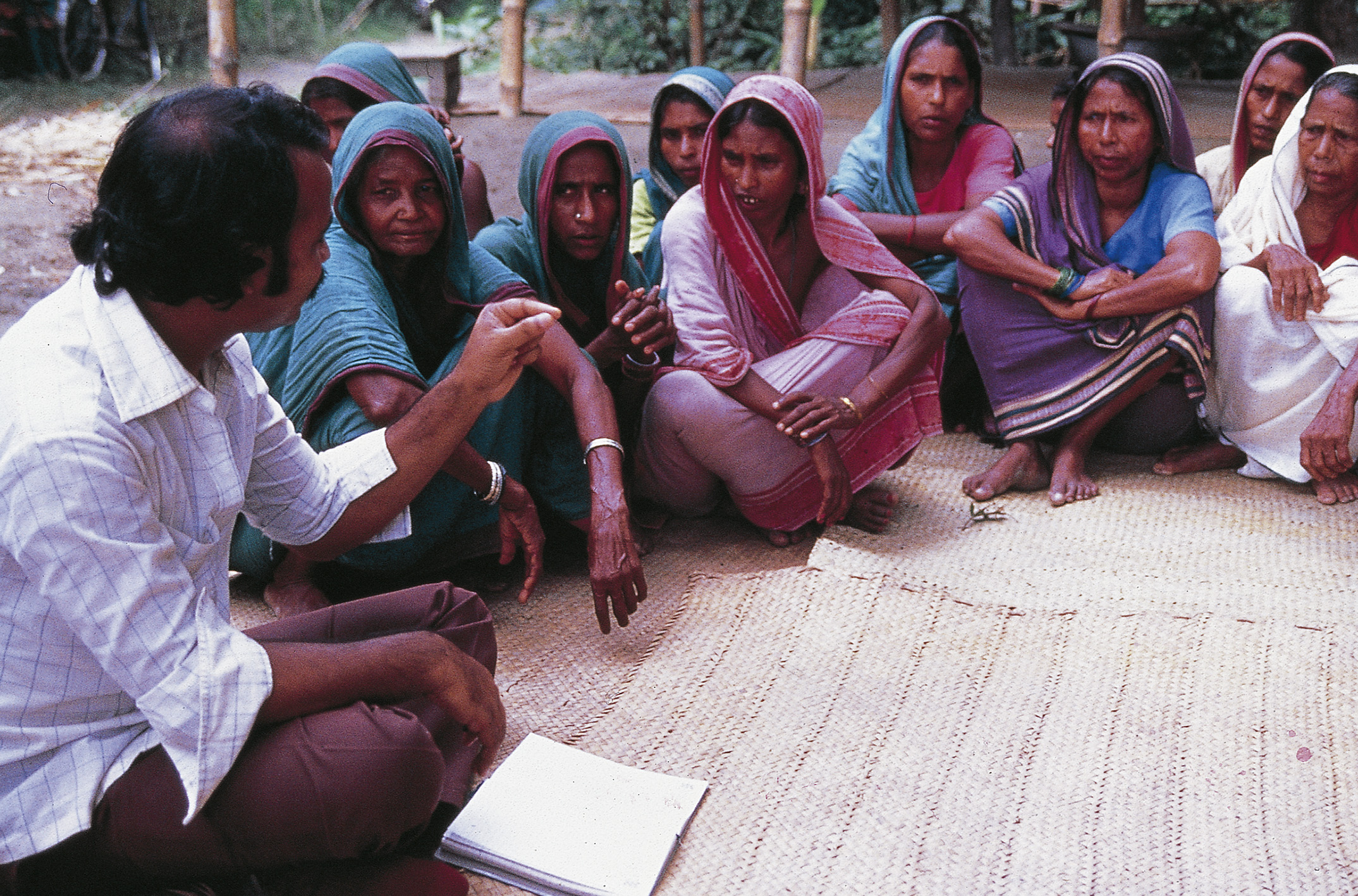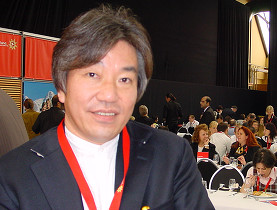Minister may face “dirty money” issue in India

The claim of “billions of dollars of dirty money hidden in Swiss banks” is a recurring theme in Indian politics.
And it’s an issue that is likely to be raised when Economics Minister Johann Schneider-Ammann visits New Delhi this Wednesday to Saturday.
Having served as the backdrop to several Bollywood films, Switzerland has become the most popular travel destination of Indians.
But Indian tourists are also increasingly suspected of coming to Switzerland to hide billions of rupees in Swiss banks.
Last week the Swiss ambassador to India, Philippe Welti, faced heated questions about the issue from journalists while attending what was expected to be a low-key ceremony to nominate a new honorary consul in Calcutta.
Following the speeches, a local journalist addressed the ambassador, asking for comment on figures announced in the Indian parliament of $1.43 trillion (SF1.32 trillion) of dirty money hidden in accounts in Switzerland. The ambassador was asked if the figure was true.
“Pure fantasy”
“It’s pure fantasy,” Welti replied in the interview which quickly spread around the country.
After several years of Indian accusations, a Swiss government representative publicly defended the country’s position on the sensitive issue of tax fraud.
“There is a treaty [between our two countries] which permits the exchange of information in case of fiscal fraud,” the ambassador said. “It is up to the Indian government to decide when it wants to submit such a demand… Personally, I have received none.”
The journalist who asked the questions, Sougata Mukhopadhyay, a political correspondent on the Indian CNN-IBN channel, could not believe his ears.
“His words contradict the claims of our government, which constantly complains of so-called Swiss non-cooperation. All that was official clap-trap!”
Mukhopadhyay is hoping that the revelations will force the authorities to be more transparent.
Champions of fraud?
How many billions of dollars are stashed away in Zurich or Geneva? Who has hidden them? How can we repatriate the money? These questions have been asked time and again since 2009 when India’s main opposition party, the Bharatiya Janata Party (BJP), made the issue part of an electoral campaign.
It is a populist recurring theme which has spawned many myths.
For example, according to a study cited by the Indian media as being authored by the Swiss Bankers Association – the association denies any involvement – Indians have stashed some SFr1.35 trillion in Swiss bank accounts. That would make them world champions when it comes to tax fraud.
It’s a figure contested by Alliance Sud, the Swiss Alliance of Development Organisations, which estimates Swiss banks are holding around SFr360 billion of dirty money from all emerging market countries, including India.
But even if the figures are exaggerated, solving the problem of dirty money remains vital for India’s development.
“In India, the whole of the elite is shifting money around,” argues Professor Arun Kumar, who teaches economics at the Jawaharlal Nehru University in New Delhi.
“Undeclared”
“Politicians, civil servants, business people, investors are all earning money that goes undeclared. Some undervalue their production, others hide a part of their revenues or invent expenses,” said Kumar.
Kumar estimates that India’s black economy represents some 50 per cent of the country’s gross domestic product.
“It’s an amount that is in part hidden in Switzerland or in other tax havens, but in particular in India,” said Kumar.
Corruption and tax fraud have cost India five percentage points of growth annually for the past 25 years, Kumar said.
“As a result of misappropriation, for example, there is no money invested in education, teachers are not paid and they refuse to give lessons. Dirty money is undermining the development of the country,” he said.
Under pressure from the opposition, New Delhi has negotiated a revision of the treaty on prevention of tax fraud with Bern, obtaining the same conditions as the United States and other member nations of the Organisation for Economic Co-operation and Development (OECD).
As soon as the agreement is ratified, India can ask the Swiss for the same of treatment in cases of tax evasion.
Limited progress
But Mark Herkenrath, a finance expert at Alliance Sud, said the revised treaty represents “limited” progress.
“This new treaty will not change much for Indians,” Herkenrath said. “First, it will not affect the sums already deposited in Switzerland because the agreement is not retroactive. And then it will be difficult for Indians to get information from Bern because they would have to prove with documentation that there really was tax evasion.
“Paradoxically, it’s like they have to give information to the Swiss that they are demanding Swiss supply to them.”
Economics Minister Schneider-Ammann will be accompanied by a Swiss business delegation during his trip to India from April 6-10.
Schneider-Ammann will hold official talks with Indian Trade and Industry Minister Anand Sharma, Finance Minister Pranab Mukherjee and Labour Minister Mallikarjun Kharge. They will discuss the ongoing negotiations on a wide-ranging trade and investment agreement between the European Free Trade Association (Efta) and India.
The minister will also visit Swiss and Indian firms in Pune and Mumbai, as well touring the planned town of Lavasa, which is a model for Indian urban development in the 21st century.
According to the Federal Customs Office, Switzerland recorded a trade surplus with India of SFr1.55 billion in 2010. At the end of 2009 the volume of Swiss direct investment in India registered by the Swiss National Bank stood at SFr3.32 billion, which led to the creation of at least 60,000 jobs in India.
Swiss mercenaries fought for France and England during the colonisation of India in the 18th century. Swiss Jesuit and Protestant missionaries travelled to India at the start of the 19th century.
In southern India, the Basel Mission was very active providing medical, educational and economic support. In 1851 the Volkart Trading Company was established in Basel and Bombay. It rapidly expanded a network of branches and diversified activities in India becoming the backbone of Switzerland’s economic and consular presence in India.
Switzerland recognised India immediately after independence in 1947 and established diplomatic relations. In 1948, Switzerland was the first state to sign a Treaty of Friendhip and Establishment with the new state. The first major investments by Swiss companies began in the mid fifties. Today India is one of Switzerland’s main partners in Asia.
(Translated from French by Robert Brookes)

In compliance with the JTI standards
More: SWI swissinfo.ch certified by the Journalism Trust Initiative




You can find an overview of ongoing debates with our journalists here. Please join us!
If you want to start a conversation about a topic raised in this article or want to report factual errors, email us at english@swissinfo.ch.